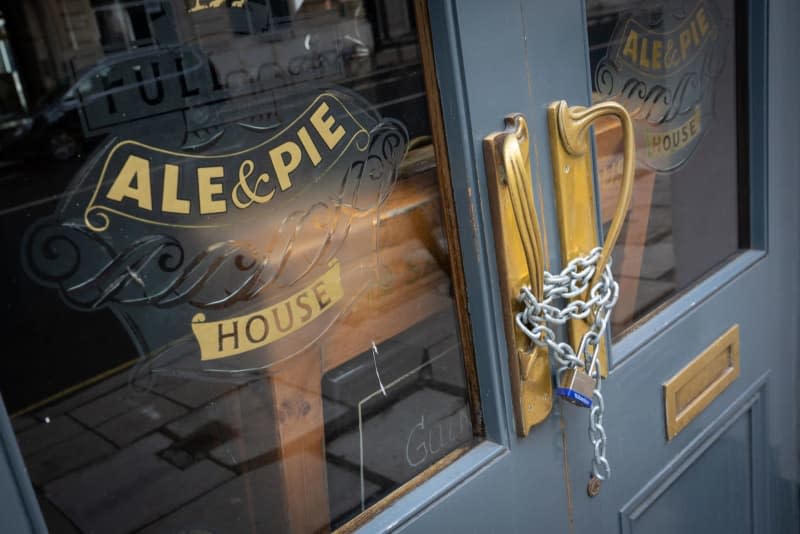London on the rocks: Is the city's party scene 'facing annihilation?'

When you picture the vibrant metropolis on the Thames, one conjures up images of colourful lights and non-stop activity until the early morning.
London's Soho and Covent Garden districts are considered dream locations for many tourists in search of nightlife hotspots. But the reality is quite different these days.
As theatregoers spill out onto the streets in the evening looking for a midnight snack, those hoping for a nightcap are often disappointed.
An open pub in London is hard to find at this time of night.
The Evening Standard newspaper recently asked its readers in despair: "When was the last time you did a proper all-nighter in London?"
Meanwhile, the Daily Mail has predicted that London's party scene is "facing annihilation."
The British media regularly cite horrified tourists who were thrown out of the pub at 10 pm and could no longer find an open bar.
"London's nightlife in crisis" was the headline of a recent report on the industry by the neo-liberal think tank Adam Smith Institute (ASI).
Operating costs are exploding
Operating costs, especially for wages, energy and raw materials, have shot up by 30% to 40%, while fewer customers are going out.
As property analysts Placemake.io and Visitor Insights report, customer frequency in the city fell by 55% in 2022 after the coronavirus restrictions were lifted compared to the pre-pandemic year of 2019.
The Night Time Industries Association (NTIA) estimates that more than 3,000 establishments such as bars and clubs have closed in the British capital since March 2020.
The fact that London's "night czar" Amy Lamé, a sort of official nightlife commissioner, regularly praises the city as a pioneer of the 24-hour economy that never sleeps is causing head-scratching among liberals and conservatives alike.
The figures are also sobering across the country. Whereas 20 years ago there were more than 3,000 nightclubs in Britain, there are now only around 850, the Times reports, citing the consultancy firm CGA.
The situation is even worse for venues with live music. The Music Venue Trust, a charitable organization, estimates that 125 of them closed last year, which roughly represents one in six venues.
The Rekom Group, which describes itself as the largest nightlife company in Northern Europe, has closed branches of its Przym disco chain in Birmingham, Leeds, Nottingham, Portsmouth, Plymouth and Watford this year.
Working from home turns employees into "TWaTs"
London has taken a hard hit, seeing a 16% decline in venues, while the decline in Liverpool stands at 3%.
One factor contributing to this trend is the rise in remote work, Graeme Smith from the consultancy firm AlixPartners says, as The Times reported.
Many people work from home now and only go into the city on Tuesdays, Wednesdays and Thursdays - a phenomenon which has earned a cheeky acronym "TWaTs."
Typical British humour, many say, because "twat" is a swear word which has a vulgar meaning for moron.
The pubs in Westminster are packed on Thursdays. But companies have significantly less time to make money. If you then have to pay more than £7 ($8.9) for a pint of beer, as is the case in most areas of London, many people reconsider ordering a second glass.
Many also cite an inadequate night-time timetable as an issue. High property prices contribute to high rents, which increases the pressure on pub and club owners, especially when customers stay away, AlixPartners expert Smith explains.
Brexit is also causing a shortage of skilled workers in the catering industry. Before the United Kingdom left the European Union, many young people from Italy, Spain and Portugal worked behind the bar.
Now, there is a shortage of them, as expensive visas mean it is no longer worth their while.
Students going out later and drinking less
The cost of living crisis still has large sections of society in its grip, even if prices have fallen again recently.
Students, an important group for the late-night economy, are going out later and drinking less, Rekom boss Peter Marks tells the BBC.
This is confirmed by research carried out by the National Union of Students (NUS), an association of British student unions.
According to the survey, 69% of students are working part-time on top of their studies.
NUS representative Chloe Field says that "62% of those working say they do [it] to afford to eat and pay bills." This means that between full-time study and part-time work, many don't have time to socialize at all, she says.
The crippling appetite for nightlife also has consequences for the city's finances. ASI estimates that London's nightlife contributes £46 billion to the economy and benefits many sectors, including transportation, security and takeaways.
Cheers to London's nightlife revival
The ASI think tank is urging both the government and city council to introduce reforms which include reductions in beer taxes and VAT, along with easing regulations for clubs, pubs and nightclubs.
Additionally, reinstating permissions for restaurants to use sidewalk space for outdoor dining, as seen during the pandemic, could provide a much-needed boost to the industry. However, such initiatives have been largely prohibited again.
Finally, the ASI is calling for transport services to be expanded at night and police presence to be enhanced around key transit hubs.
By cutting unnecessary bureaucracy, making London city safer at night and reducing burdensome costs across the hospitality industry, it is possible to "restore London's reputation as a true 24-hour city," the think tank says. "We can all drink to that."



